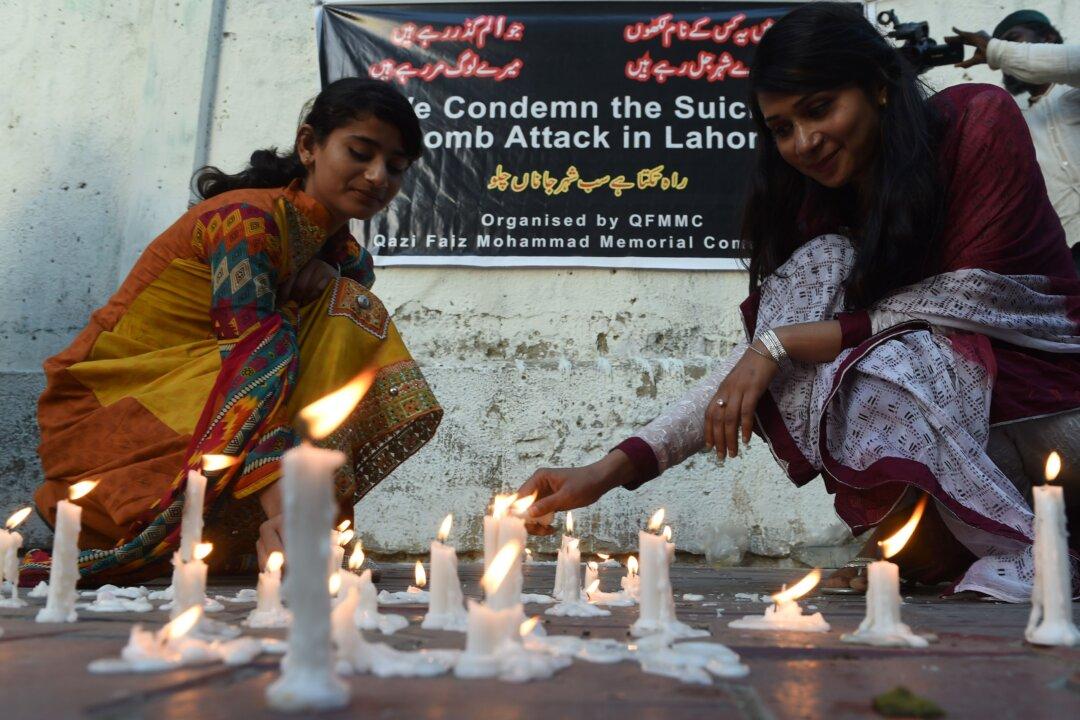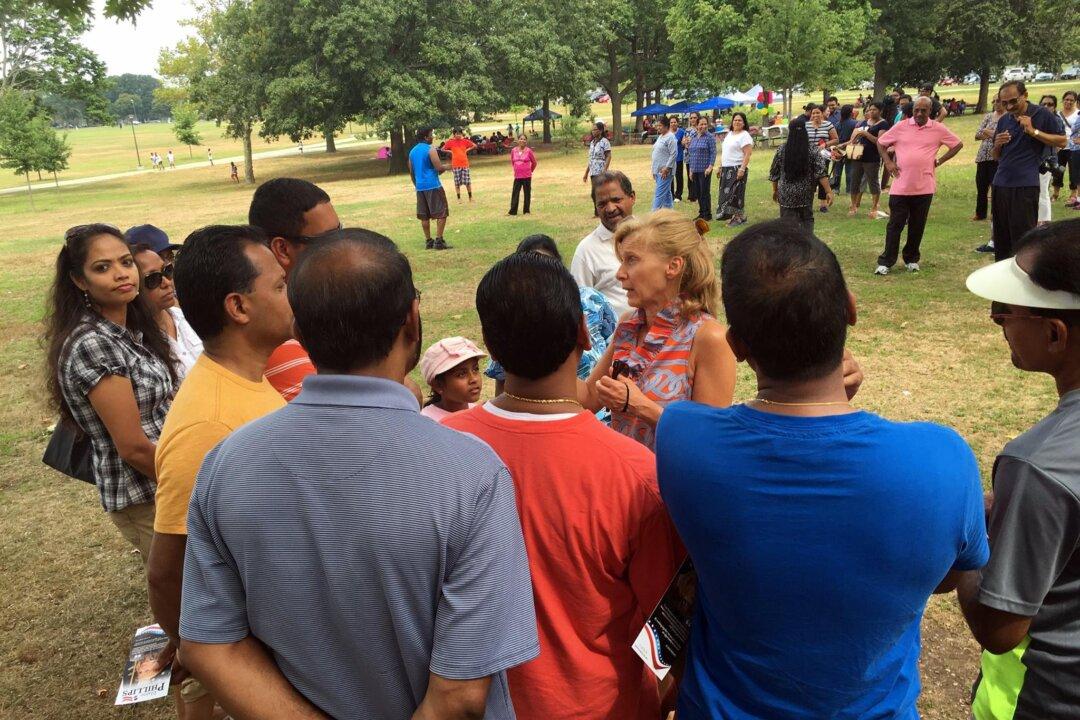On one of the first days of November 2014 the rumor spread throughout the city of Kasur in the province of Punjab in the nation of Pakistan that Sajjad Maseeh and his wife Shama Bibi, both Christians, had burned verses from the Muslim holy book, the Koran. That rumor was soon followed by a mob of some 1,200 outraged Muslims who trailed Sajjad and his wife to the industrial building in which they both worked.
Because the leaders of the mob wanted to prevent Sajjad and Shama, the mother of their four young children who was four months pregnant at the time, to attempt to flee from them, they broke their legs. And because Shama was wearing an outfit that didn’t easily burn, she was wrapped in flammable cotton.
The mob then held the couple over a brick furnace until their clothes caught fire, before throwing both of them into that same brick furnace in which they were both burned alive.
This atrocity was witnessed by scores of on-lookers; among them was Javed Maseeh, Sajjad’s first cousin. Javad, who had pleaded in vain to the mob to spare the couple, spoke these chilling words over telephone to America’s NBC News several days after the attack: “The bones are still being found. Friends keep collecting them and bringing them to us in batches of two and three. We will bury these bones when we have [enough] for the bodies. But we will not find all of them. I’m sure.”
Also in 2014, Pervez Rafique founded an organization, Bleeding for Belief, that seeks to put an end to atrocities like those visited on Shajjad Maseeh and Shama Bibi and to end religion-based genocide in Pakistan.
Rafique, 45, possesses a deep personal understanding of the evil of intolerance in Pakistan. In January 2011 his close friend and political ally Salman Taseer, the former Muslim governor of Punjab, was assassinated by religious extremists.
His murderers’ grievance: Taseer was a leading and highly respected voice opposing the Blasphemy Laws. In March of that same year, another close friend and ally of Rafique, Shahbaz Bhatti, the Christian former federal minister for minorities, was assassinated by religious extremists—for the same reason that Taseer had been murdered two months earlier.
“It was a very sad and tragic time for me and for all peace loving people of Pakistan. I had lost two friends, and the people had lost two strong voices for human rights for all people of Pakistan,” he told me.
Serving at the time in the Punjab Parliament in one of the few seats that minorities were permitted to hold, Rafique, despite numerous death threats, continued the crusade that had been begun by his two fallen friends. However, when, in the early days of 2014, he received information from his political allies that religious extremists were planning his imminent assassination he fled to America as a political refugee, taking up residence in Queens.
Blasphemy Laws
“The genocide that is taking place in Pakistan today has very dark roots,” Rafique said, “beginning with changing the name and basic idea of Pakistan from a democracy to an Islamic state, to labeling its citizens as Muslim or non-Muslim, and then finally these past awful 35 years to these barbaric Blasphemy Laws.”
One of the most significant political events in the history Rafique sketches occurred in 1973, although it seemed to be benign at the time.
In that year then President Zulficar Ali Bhutto persuaded the National Assembly (Pakistan’s national legislative body) to adopt a new Constitution establishing a parliamentary system of government. The new Constitution, the fourth since Pakistan secured its independence in 1947 appeared at the time to be a great gift to all of Pakistan’s religious minorities.
The three prior Constitutions, which were constructed with provisions limiting the rights and freedoms of minorities, went against the core principles of Pakistan’s Sunni founding father Ali Jinnah, who championed the idea that citizens of all religions should be treated equally.




